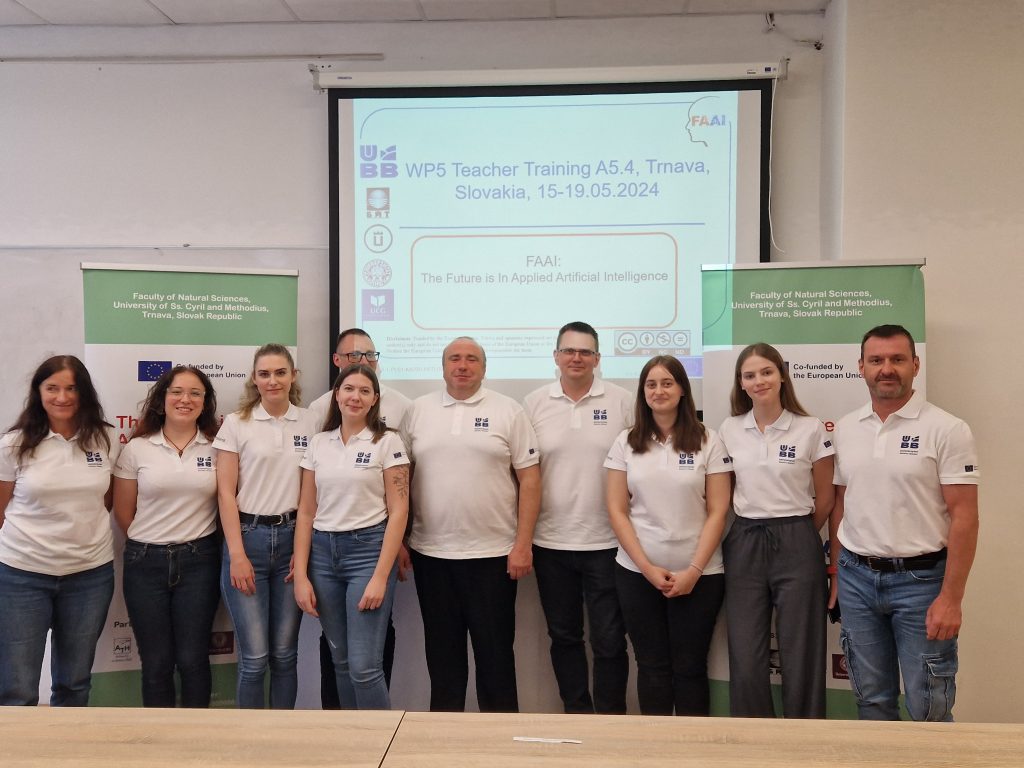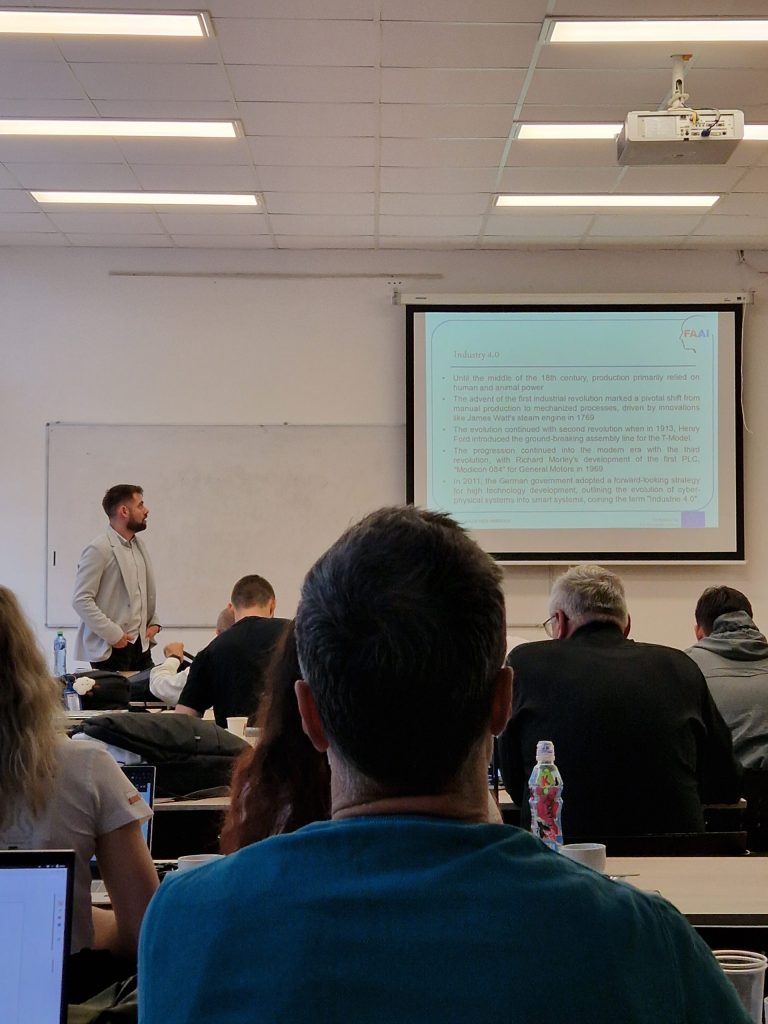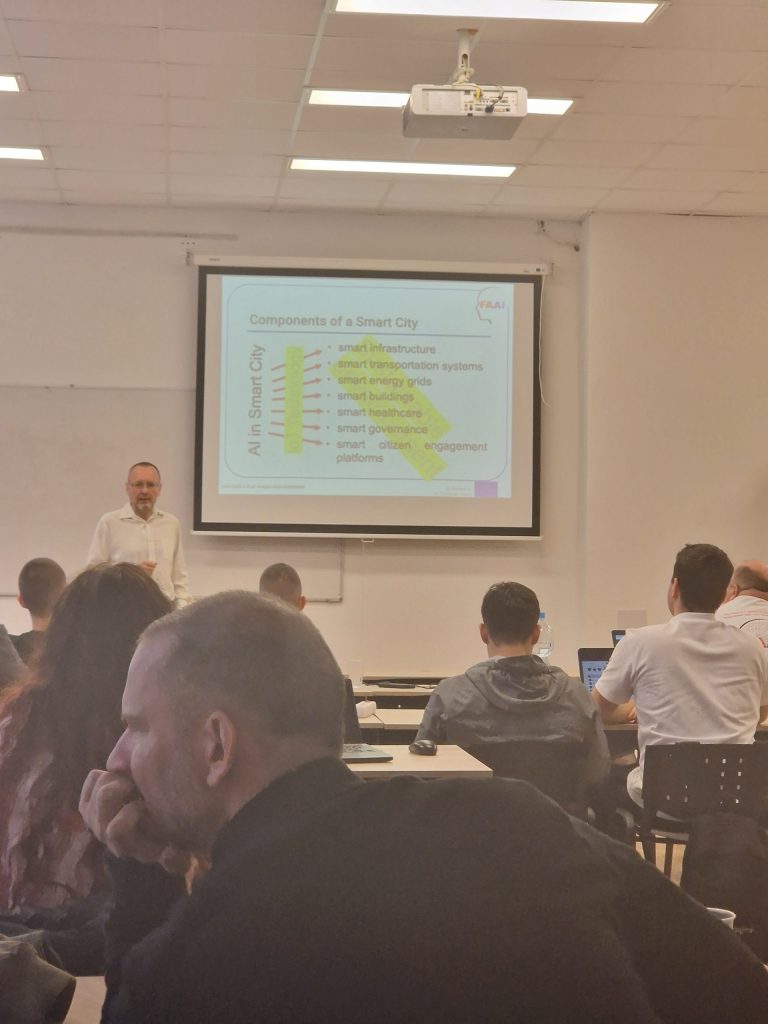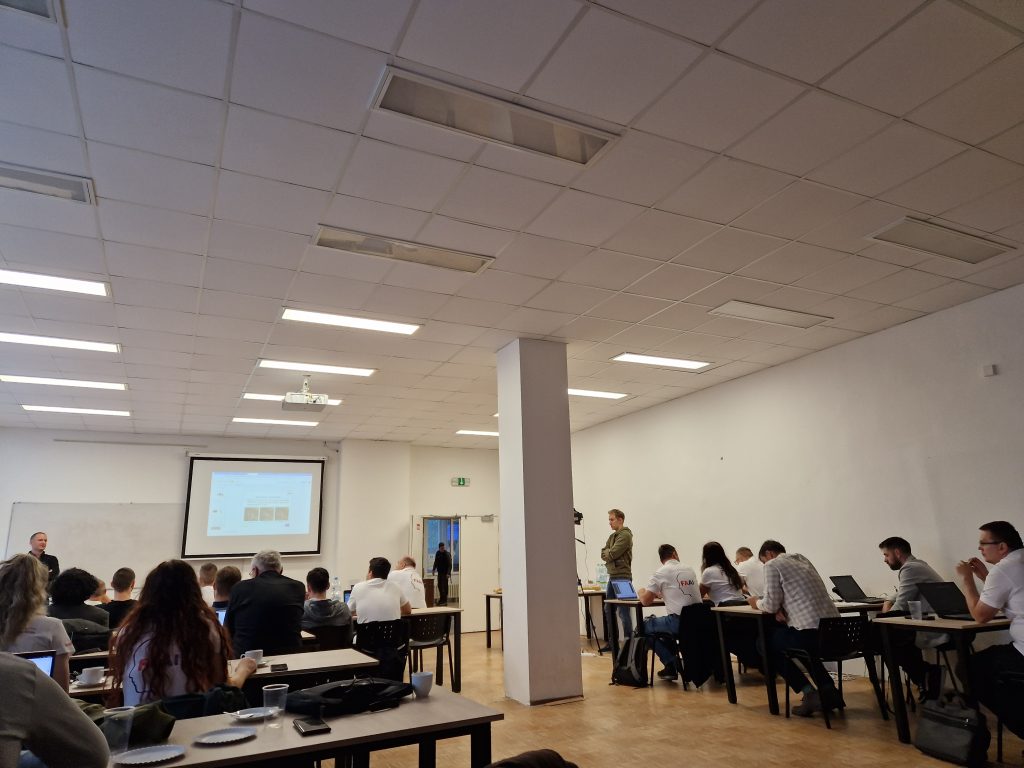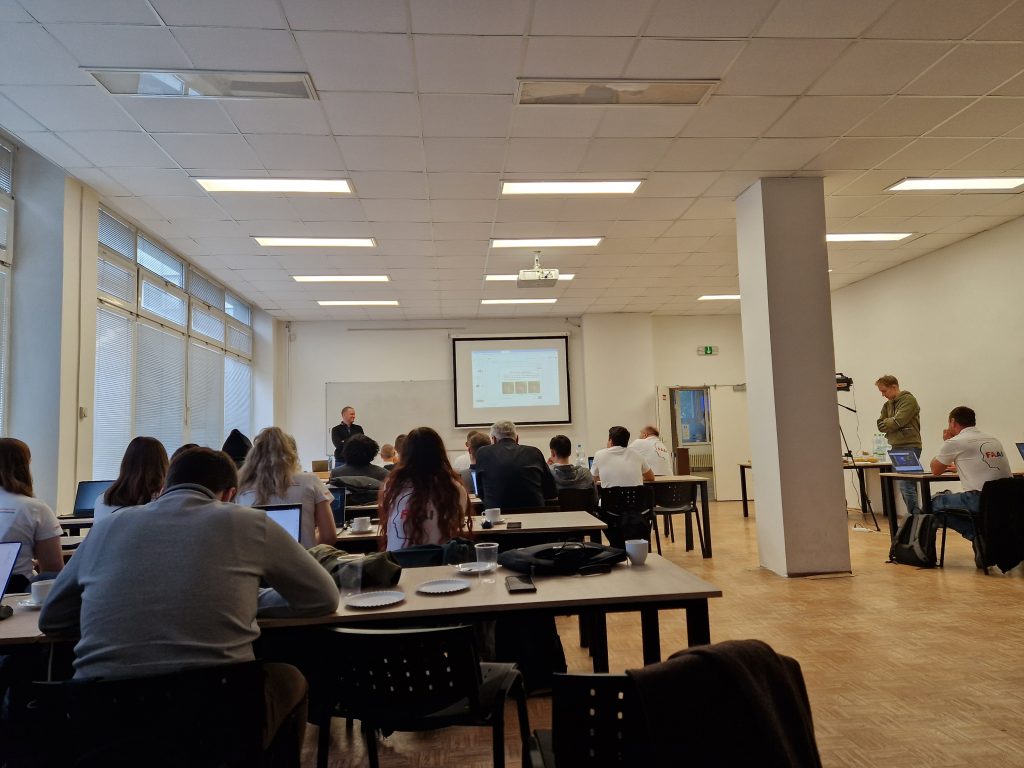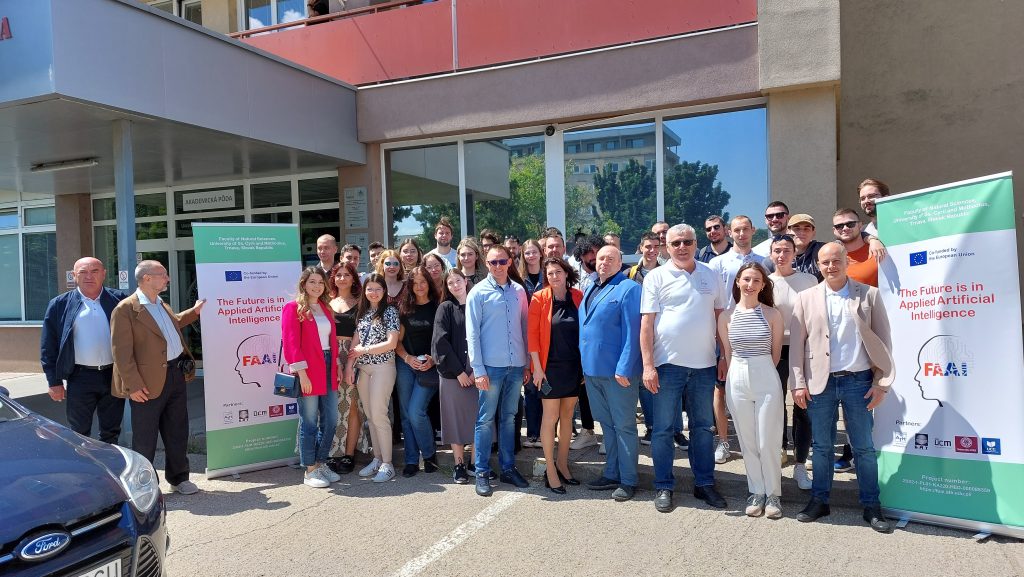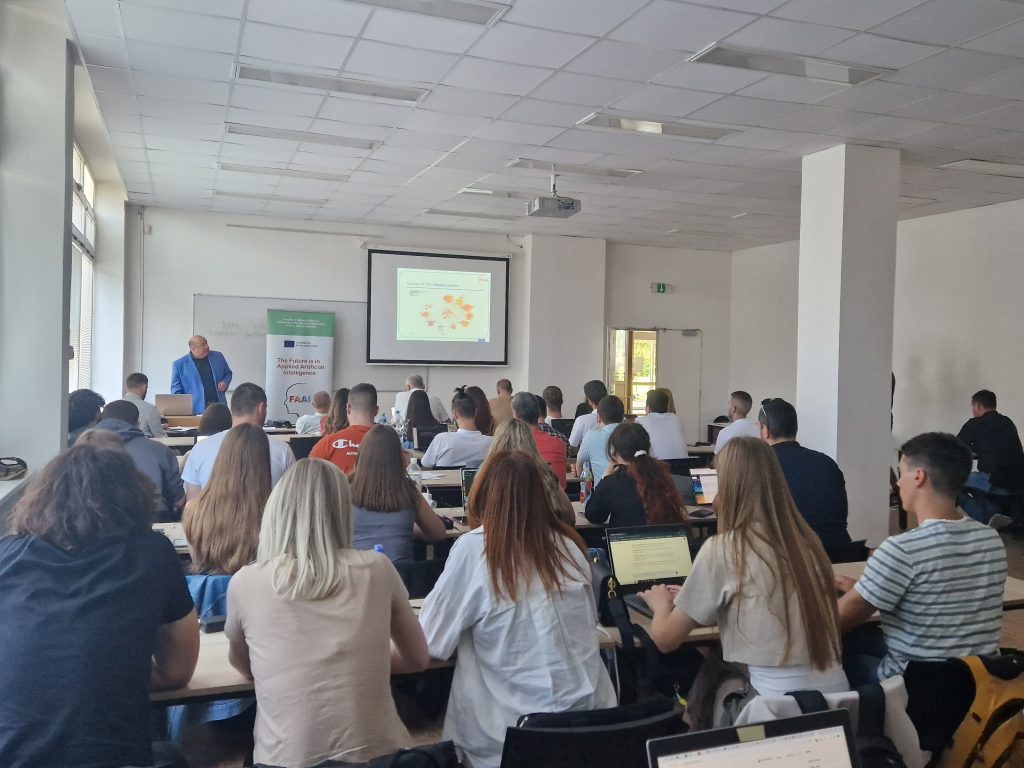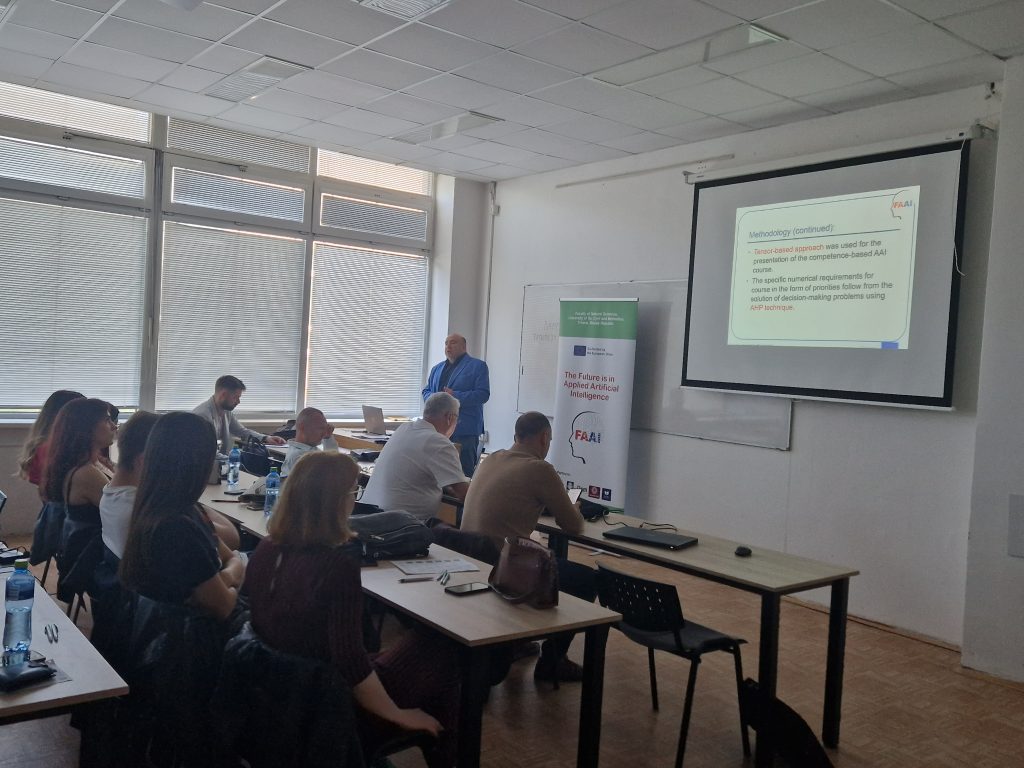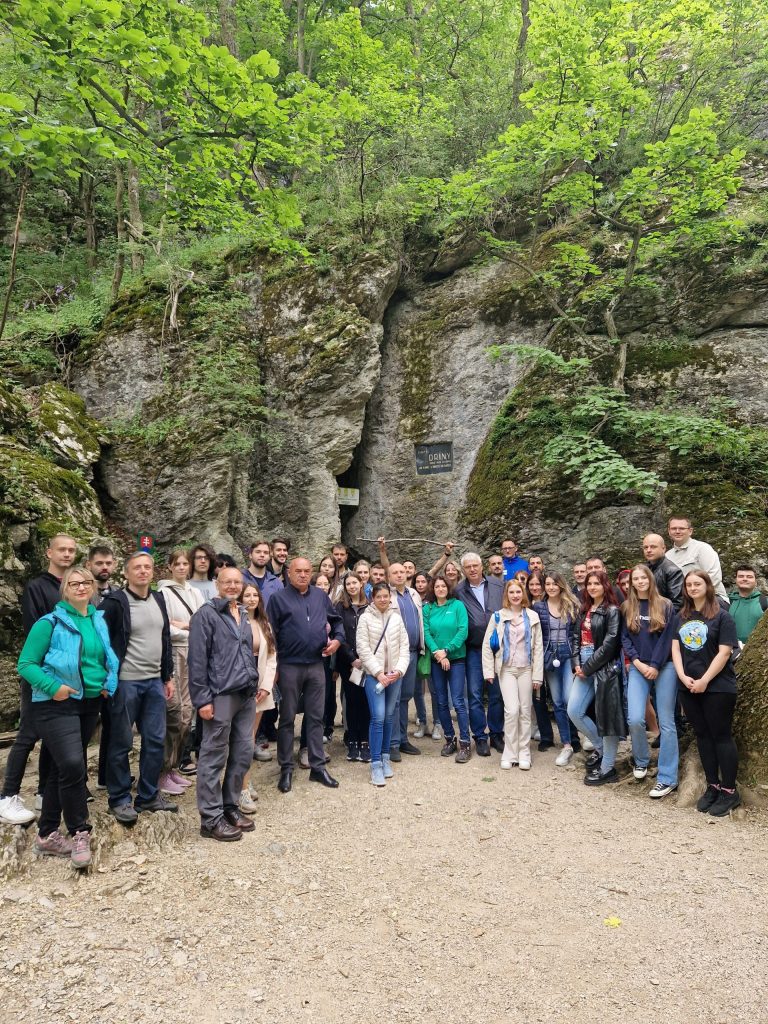Teacher Training A5.4 in Trnava, Slovakia
Dates: May 15-19, 2024
Location: University of Ss. Cyril and Methodius in Trnava, Slovakia
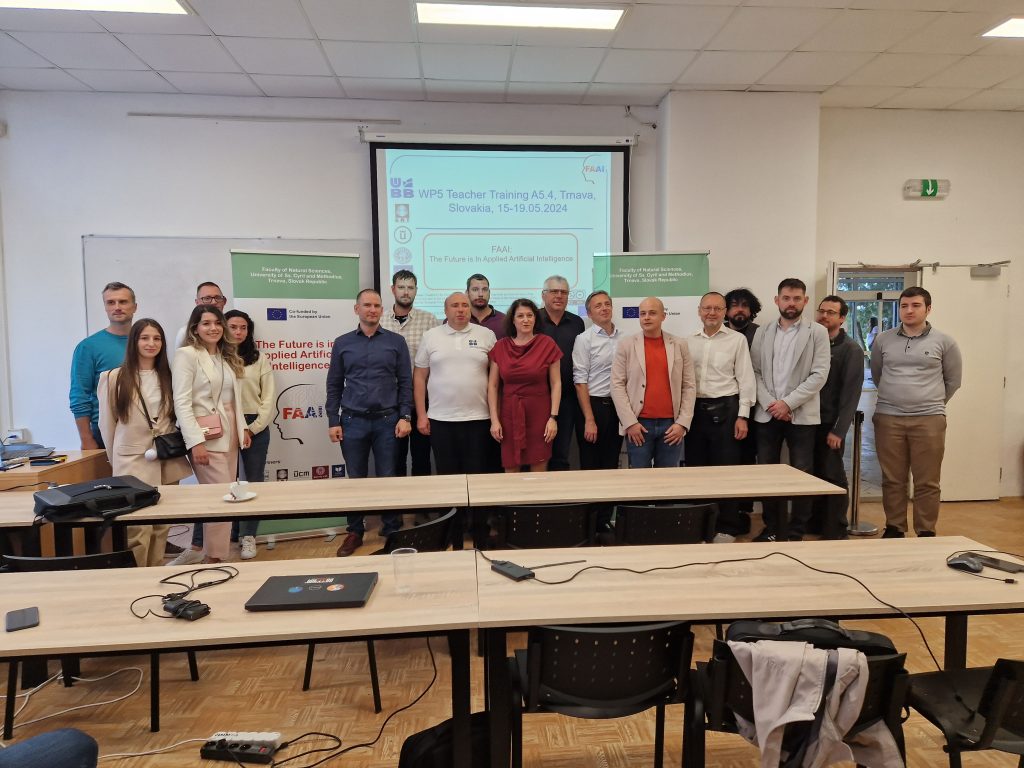
The A5.4 Teacher Training event, held from May 15-19, 2024, in Trnava, Slovakia, brought together educators from five partner institutions to develop comprehensive teaching materials and guidelines for Artificial Intelligence (AI) and Machine Learning (ML) education. Organized by the University of Ss. Cyril and Methodius in Trnava, this training focused on equipping teachers with practical knowledge, resources, and frameworks to support and enhance AI education within various academic environments.
Participating Institutions:
- University of Bielsko-Biala, Poland (UBB)
- University of Library Studies and IT, Bulgaria (ULSIT)
- The University of Nis, Serbia (UNI)
- The University of Ss. Cyril and Methodius in Trnava, Slovakia (UCMT)
- University of Montenegro, Montenegro (UoM)
Training Overview and Agenda Highlights
Across five days, participants worked collaboratively to establish practical resources, including guidelines and educational materials for AI instruction. This training not only focused on content development but also provided a forum for discussing and refining methodologies, curriculum design, and teaching strategies for AI-related courses.
Day 1: Opening and Good Practice Guidelines
The training commenced with a welcome address by UCMT, which introduced participants to each other and set the tone for the week’s collaborative work. ULSIT led the first session on Good Practice in Developing Guidelines, sharing methods for structuring effective teaching resources. This session offered practical insights into creating comprehensive yet adaptable teaching materials, critical for AI education across diverse institutional settings.
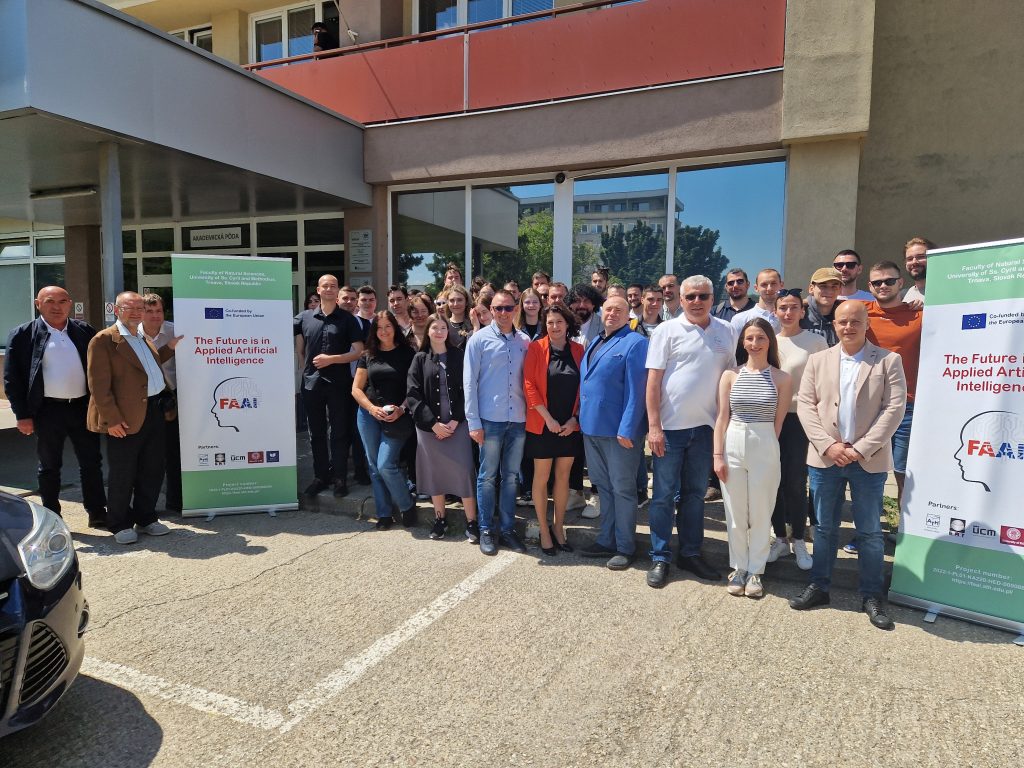
Day 2: Developing the AAI Teacher Guide
UBB led a focused session on the development of the AAI Teacher Guide, which provides educators with foundational AI concepts, teaching strategies, and adaptable resources for classroom use. Following this, teachers collaborated in team sessions to expand and refine the guide with input from UCMT, ensuring that it would be accessible and relevant across different educational contexts.
Day 3: Creating the AAI Student Guide
ULSIT took the lead on Day 3 to develop the AAI Student Guide. This guide aims to provide students with clear, foundational information on AI principles and practical skills, tailored to varying levels of AI knowledge. The guide also includes interactive activities and project-based learning recommendations, supporting a hands-on approach to AI education.
Day 4: Building the AAI Business Guide
Day 4 shifted focus toward practical applications of AI in business, with UNI presenting the initial framework for the AAI Business Guide. This resource is designed to bridge the gap between academic AI education and industry applications, preparing students with the knowledge and skills they’ll need to understand and apply AI solutions in professional settings. UoM and UNI facilitated collaborative team sessions, encouraging participants to integrate business-relevant AI scenarios and case studies.
Day 5: Certification and Round Table on Future Improvements
On the final day, all participants received certificates of completion as recognition for their involvement in developing these essential AI resources. This was followed by a round-table discussion on enhancing the AAI framework, including potential revisions to methodology, curriculum, and content to align with emerging trends and requirements in AI and ML. Institutional coordinators concluded with a summary of training outcomes and an outline of future project steps to ensure continued progress and support.
Conclusion
The A5.4 Teacher Training in Trnava served as a productive and impactful event, allowing educators to collaboratively build and refine resources that will enhance AI and ML education for students, teachers, and industry professionals alike. By developing these guides, the training has contributed to a stronger foundation for AI learning across participating institutions, ensuring that both educators and students are well-prepared for the demands of the AI field. As the FAAI project progresses, these resources will play a crucial role in supporting an informed, skilled generation of AI practitioners.
